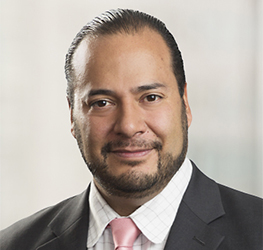Ban to General Outsourcing/Insourcing Is Approved by Mexican Congress

Andres Armida, an external consultant, also contributed to this article.

As previously informed, on November 11, 2020, the President of Mexico submitted a bill proposing the amendment of the Federal Labor Law, Social Security Law, National Workers’ Housing Fund Institute Law, Federal Tax Code, Income Tax Law and Value Added Tax Law (the “Bill”) forbidding subcontracting/general-outsourcing of employees. After several months of discussions, the Mexican Congress approved the Bill with certain adjustments. In general, the Bill can be dissected as follows (additions to our prior alert are italicized):
- Outsourcing/subcontracting. Safe for the rendering of specialized services or works, the arrangements through which an individual or entity makes its own employees available for the benefit of other (outsourcing/insourcing of personnel) is prohibited.
- Professional Employment Placement Agencies (PEPA). PEPAs are authorized to provide intermediation services during employers’ hiring process by recruiting, selecting, training and capacity building among others. At all times the employer will be the party benefiting from such services.
- Specialized Services and Works. To the extent that a service provider obtains its recordation from the Ministry of Labor and Social Welfare (“MLSW”) to provide specialized services, same may be legally retained by a company or individual. To such end, specialized services or works as well as shared or complimentary services within the same business group, are the ones that are not part of the corporate purpose or economic activity of the intended beneficiary. Hence, cost centers for business groups would qualify as specialized services if the referred parameters are met. There is still no clarity on what should be construed as economic activity, nor of the rules to be recorded before the MLSW as a specialized service provider.
The MLSW shall published such rules within 30 days following effect of the Bill. Specialized service providers shall request registration as such within three months following enactment of such rules. In any case the MLSW shall resolve such registration request within 20 days, being that failure to do so will entitle the petitioner to request response, should the MLSW fails to respond within 3 days following the latter request, the registration shall be deemed as perfected.
- Specialized Services Companies’ Registry. The MLSW will have a public registry where specialized services companies will be recorded and shall renew same every three years.
- Employer Substitution. In order to perfect an employer substitution, former employer shall transfer the relevant assets to the new employer, except when such transfer is effected within three months following enactment of the Bill.
- Limit on Profit Sharing. A cap on profit sharing equal to a maximum of three months of wages, or the average paid to employees during the last three years (when such share was higher than those three months) was set in the Bill.
- Sanctions and fines. The Bill sets forth fines to the companies benefiting from outsourcing in amounts that range from USD$1,120 up to USD$22,400.
- Social Security. The beneficiary of the specialized services/works will be jointly liable for social security obligations of contractor’s employees used during such service/work. Specialized providers will need to provide to the Mexican Social Security Institute information of the beneficiary and employees available for such beneficiary as well as other general information.
- Tax. Tax deductions or reimbursement of Value Added Tax and Income Tax for outsourcing (or insourcing) of personnel will no longer be permitted, unless it comes from a recorded and authorized specialized service company. The obligation to withhold 6% for Value Added Purposes while retaining these services was removed. The use of simulated transactions for the rendering of specialized services, the execution of specialized work, or the outsourcing of personnel will constitute elements toward the commission of criminal tax fraud.
- Effect. The Bill will become effective as of its day of publishing at the Federation’s Official Gazette (presumably on May 1st). As of that moment certain periods will commence to run against companies (term to request recordation as specialized service or works provider, term to transfer employees without the obligation to transfer the relevant assets of the former employee, term to provide classification of risks to the social security institute, etc.). Hence, a careful review of the strategy to be implemented by corporate groups turns to be of the utmost importance.
- Challenges. The vast majority of companies that set up an operation in Mexico had rely in a model whereby an operations’ company is served by an employee services’ company (insourcing). Likewise, foreign companies that want to test the market, normally turn to a Professional Employment Organization (PEO) to assist them while they assess the viability of the market. As announced earlier, under the Bill, such legal schemes will no longer be permitted and thus, will require corporate and tax restructuring.
In light of such restriction, it should be considered is if as opposed to what was the corporate trend of having expansive corporate purposes to enable the operational company to perform all sort of activities, same should be reduced to exclusively the core activity as a business unit (e.g. finance, field operations, marketing, etc.) enabling rendering or hiring of specialized services to the extent that such services are recorded at the MLSW.
A major issue to be considered by companies that perform legal outsourcing, is liquidity and indemnification (performance bonds) capability of specialized service providers, since failure by them to respond to its employees or social security authorities will impact them by causing the beneficiaries to be jointly liable for such omissions. Moreover, reporting them shall become of the utmost importance since registration may be cancelled by the MLSW, thus, potentially triggering adverse tax effects to the beneficiary if payments continue to be made to a deregistered provider. Hence, a surveillance and audit cost should be considered while contracting independent service providers (outside of the cost centers).

